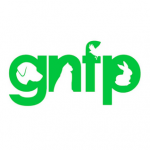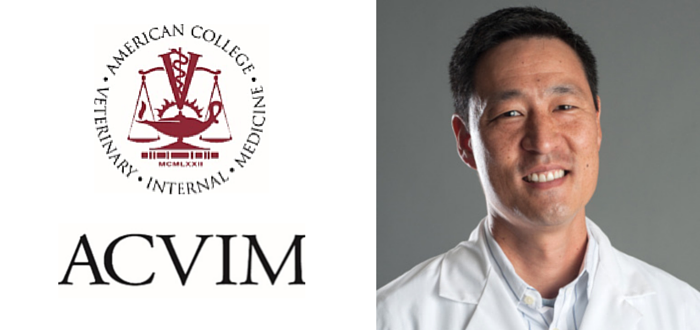It’s All About Studying Owners’ Quality of Life
ACVIM Board-certified cardiologist addresses subject June 3 at 2015 ACVIM Forum, Indianapolis
(Denver, Colo.) It’s called DOGhOUSE but it’s not exactly what you’re thinking.
It isn’t the conventional doghouse haven where Fido rushes to escape household chaos and raised voices. Nor is it that psychological place where we all find ourselves occasionally when the significant other is mad—and sometimes with good reason.
Investigators at Penn Vet and the Hospital of the University of Pennsylvania are undertaking a research study to develop and validate a quality-of-life questionnaire named DOGhOUSE, which will be sent to 300 dog owners.
Dr. Mark Oyama, a University of Pennsylvania School of Veterinary Medicine Cardiologist
Dr. Mark Oyama, a University of Pennsylvania School of Veterinary Medicine cardiologist, will introduce it to specialists June 3 at the American College of Veterinary Internal Medicine Forum in Indianapolis in an address entitled “The Connection Between Dog Health and Ownership on Human Well-Being.”
“Dog ownership is associated with physical health and psychological benefits,” says Oyama. “The effects on overall well-being and quality of life are critical components of human health and deserving of study.”
Measurement of quality of living associated with dog ownership, he argues, is hindered by the lack of quality-of-living questions specifically validated for this type of research.
The potential for dog ownership to have a negative impact on its owner’s quality of living—increased caretaking responsibility, financial burden and stress associated with the dog becoming ill— has been overlooked in previous work, adds the veterinarian.
DOGhOUSE is designed as a well-balanced instrument aimed at overcoming previous inadequacies in capturing a true sense of respondents’ feelings on all facets of dog ownership. It concentrates on 10 aspects of everyday life that researchers have identified as important between owners and their dogs.
It includes sections on background (the respondent is not identified) such as gender, zip code of residence, marital status, year of birth and whether there are dependents or children in the household.
The other three sections deal with the potential positive aspects of dog ownership; potential negative aspects of dog ownership; effect of dog ownership on the individual’s overall quality of life.
Potential negative ownership questions are: dog ownership interferes with my other household responsibilities; dog ownership results in damage to my belongings or property; dog ownership interferes with my ability to go on vacation or leave my house; dog ownership increases my level of stress.
And here’s what respondents will answer in the final section—the effect of dog ownership on one’s overall quality of life: how would you rate the effect of dog ownership on your physical activities and ability; on your social activities and relationships; on your emotional health and happiness; on your overall quality of life.
Answer options here range from moderately negative to strongly positive.
Investigators are hopeful that upon completion DOGhOUSE can be used in a variety of studies to better understand the effect of dog ownership, intervention and animal-assisted therapy on our quality of life. Up to 300 owners will take the survey—which can be completed in 10 minutes.
Media Attendance: Accredited members of the media may attend the 2015 ACVIM Forum at no charge. However, you are required to register with the ACVIM. For media registration, please contact Laurie Nelson at Laurie@ACVIM.org or 303.231.9933 Ext. 101.
# # #
About the American College of Veterinary Internal Medicine (ACVIM)
The American College of Veterinary Internal Medicine (ACVIM) is a nonprofit organization dedicated to improving the lives of animals and people through education, training and certification of specialists in veterinary internal medicine, discovery and dissemination of new medical knowledge, and increasing public awareness of advances in veterinary medical care.
The ACVIM hosts the ACVIM Forum, an annual continuing education meeting where cutting-edge information, technology and research abstracts are showcased for the veterinary community. More than 3,200 veterinary specialists, veterinarians, technicians and students attend.
“Visit Indy is thrilled to welcome the American College of Veterinary Internal Medicine to Indianapolis for their 2015 ACVIM Forum,” said Chris Gahl, Vice President of Marketing and Communications at Visit Indy. “We look forward to welcoming more than 3,200 attendees who will generate more than $4.2 million in economic impact for central Indiana.”
The ACVIM is the certifying organization for veterinary specialists in cardiology, large animal internal medicine, neurology, oncology and small animal internal medicine. To find out more about ACVIM specialists and the 2015 ACVIM Forum, please visit www.ACVIM.org.
| CONTACT: | ||
| Laurie Nelson Marketing and Member Services Manager Office: 303.231.9933 Ext. 101 Cell: 303.324.2630 Laurie@ACVIM.org |
|

